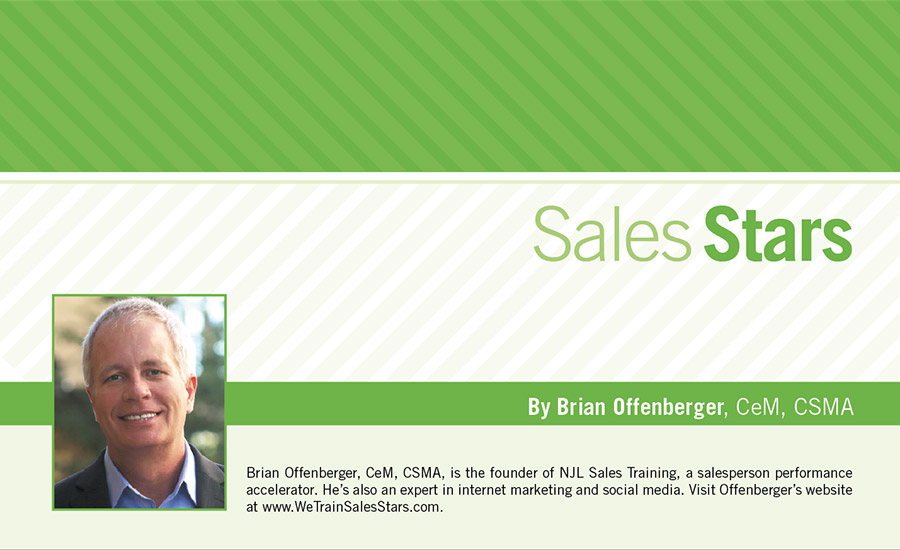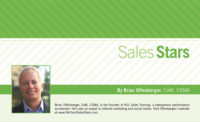One of the things that will turn a security salesperson pale is to hear a prospect say, “I’ve met with two of your competitors and both will do it for less money.” Or, “Nice presentation. We’re going to shop around. We’ll get back to you.”
If the sales rep has done a proper job prequalifying the prospect, then the issue is not the amount of money involved. A good sales rep never tries to sell things to prospects that don’t have the money to buy.
The problem in this example is that the prospect doesn’t see value in hiring the rep or their company. This is a common problem, but it’s one that can be easily fixed.
The best way to establish and sell value is by clearly differentiating your products and services. To most prospects, security companies appear to offer just about the same products and services. Prospects have a hard time noticing discernable differences between products, services and even companies. They can buy from a multitude of sources. They view what you do as a commodity, one they can get anywhere at any time.
Unless you can create a powerful and distinct difference in the mind of the customer between you and others, you’ll simply appear to be just one of the crowd. How do you separate yourself and your offerings from those of your competitors?
4 Ways to Differentiate Yourself
1. Build trust. According to HubSpot, only 3 percent of buyers trust salespeople. That’s a lower trust rating than most Americans have of politicians. With buyers being so wary of sales reps, I suggest you focus on establishing trust to build value and differentiate yourself from the competition.
The best way to build trust is through online reviews and video testimonials. Surveys show people trust online reviews almost as much as they trust word-of-mouth referrals. Make getting and promoting reviews a priority.
Use your smartphone to film short one-minute video testimonials from satisfied customers. Would you make more sales if your prospects saw 900 video testimonials from your satisfied customers? How about even 10?
You also can establish company policies such as performance guarantees, customer satisfaction guarantees, and no long-term contracts as a way of establishing trust. The more prospects trust you, the more they’ll buy from you.
2. Communicate your unique value proposition. What do you do that customers are willing to pay for that your competitor can’t do? Your answer to that question is called your “unique value proposition.” If it is relevant to the prospect, and truly unique from the competition, you’ll sell more at higher margins. Customers want to know why they should spend their hard-earned money with you versus the other guy. Give them relevant, unique reasons.
3. Differentiate your products and services. How are your product offerings different from or better than your competitors? Maybe you have a longer warranty. Maybe your product is more reliable or generates fewer false alarms. Maybe it offers very different features and functionality.
We have a customer that guarantees a two-hour service response time to hospitals and other critical facilities, which is extremely successful for them. Can you do something like that?
4. Professionally complete your LinkedIn profile. This is especially important for business-to-business sellers. Many of your prospects will research your background on LinkedIn at some stage in their buying process. That’s already happening every day.
Marketing experts speculate that Microsoft’s recent acquisition of LinkedIn will integrate LinkedIn with Outlook, and bring new information and functionality to users that will result in even greater use of LinkedIn. This could mean big things to security salespeople.
Learn to use LinkedIn. It is where your customers are. Thoroughly and professionally complete and optimize your personal and business LinkedIn profiles so you can take advantage of all the opportunities afforded by this platform.
Prospects will always pay for expertise and will buy from people they know, like and trust. Leverage these four tactics for more sales at higher margins.




